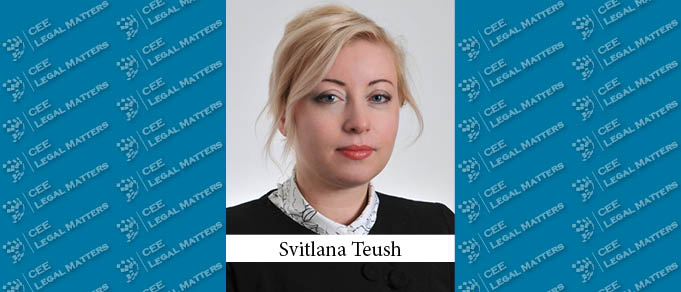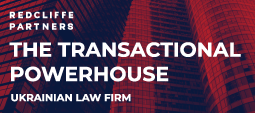On 15 February 2022, a long-awaited draft law No. 5436-d “On the Amendment of Certain Laws of Ukraine Regarding the Development of Energy Storage Facilities” (“Draft Law“) was adopted in its entirety by the Ukrainian Parliament at its second reading. The Draft Law develops the legal framework for the deployment of energy storage facilities (“ESF“), which has been very limited until now, and introduces relevant concepts and requirements into the laws of Ukraine “On the Electricity Market” and “On the National Energy and Utilities Regulatory Commission” aligned with the EU electricity acquis.
Once enacted into law, the Draft Law is expected to boost ESF projects in Ukraine, help balance the Ukrainian power system and integrate the growing renewable energy capacities, meet the electricity demand, and promote the development of the distributed generation. According to the draft Report on the assessment of adequacy (sufficiency) of generating facilities for the years 2023-2032, prepared by Ukrenergo, the Ukrainian transmission system operator (“TSO“), it is necessary to deploy up to 0.74 GW of energy storage capacities by 2032 to ensure required flexibility of the Ukrainian power system.
1. ESF operators introduced as the new participants of the electricity market
The Draft Law introduces ESF operators as the new participants in the electricity market. Individuals and legal entities (except for pumped hydro power plants) can become ESF operators and use ESF to sell electricity and/or provide balancing or ancillary services with the use of ESF.
Energy storage activity is generally subject to licensing. However, such licence is not required for:
1. Power producers which use ESF at the location of their licensed generating installations to store electricity produced by such installations, provided that the actual aggregate output capacities of such producer do not exceed, at any time, the relevant installed capacity of the generating installations indicated in the respective electricity generation licences of such producers. In addition, to be exempt from the licensing, a renewable energy producer (“RES producer“) operating at the feed-in tariff or the auction price (once auctions are introduced) should use for its ESF the electricity produced from the renewable energy sources by such producer’s generating installations;
2. Consumers, provided that they do not feed electricity into Ukraine’s unified power system or other participants’ networks; and
3. Electric vehicle charging services (since they are considered as power consumption).
A separate commercial metering will be required for the operation of any ESF.
2. ESF to face the merchant market
The Draft Law does not establish any special incentives in relation to ESF, which would thus have to operate in the merchant market. However, one important advantage is that ESF operators would be able to pay for the transmission, distribution or dispatch services based on the difference between the monthly consumption and monthly output of electric power.
If a RES producer deploys ESF in accordance with Ukrainian law, this would not entail a review of the support scheme entertained by such producer (whether the feed-in tariff, or the auction price). However, in the event of curtailment ordered by the dispatch operators, compensation payable to a RES producer will be reduced, since the amount of electricity undersupplied by a RES producer due to such curtailment (which is used for the calculation of compensation) will be reduced by the amount of electricity feeding such producer’s ESF for the duration of such curtailment.
The preliminary (optimal) network connection points of ESF should be outlined by Ukrenergo in the transmission system development plan, without limiting the right of ESF owners to be connected, on a transparent and non-discriminatory basis, to other points in accordance with procedures established by the network codes.
3. Restrictions on energy storage activity
Certain participants of the electricity market cannot engage in energy storage activities. These include the network operators; the market operator; the administrator of payments and the commercial metering administrator (currently, the TSO); and the guaranteed buyer (the offtaker purchasing electricity from RES producers at the feed-in tariff or the auction price). This prohibition is aimed at preventing cross-subsidisation between ESF activity and the regulated functions of the market participants, and distortion of competition.
However, certain exceptions are made for the network operators. They cannot own, possess, develop, manage, use or operate ESF, except where:
- ESF is a fully integrated network component which is used for the sole purpose of ensuring secure and reliable operation of the network, and not for balancing or frequency or congestion regulation, provided that Ukraine’s energy regulator, the National Energy and Utilities Regulatory Commission (“Regulator“) has granted its approval; or
the following conditions are cumulatively satisfied:
- other parties, following an open, transparent and non-discriminatory tendering procedure that is subject to review and approval by the Regulator, have not been awarded the right to own, develop, manage or operate such SEF, or could not deliver those services at a reasonable cost and in a timely manner;
- ESF is necessary for the network operators to fulfil their obligations for ensuring network security and reliability, and provided that ESF is not used to buy or sell electricity in the electricity market or perform ancillary or balancing services; and
- the Regulator, upon the request of the network operator, has assessed the need for such operator to own, develop, manage, use or operate ESF, reviewed tender documents and adopted a decision on granting the relevant right to a network operator.
- When granting any of the above rights to the TSO, the Regulator will have to report its justified decision to the Energy Community Secretariat.
In order to ensure the fair tendering procedure, the Regulator will approve the guidelines for the procurement of ESF for the network operators.
4. Regular review and optimisation of investment in ESF
The Regulator should perform, at least every five years, public consultations on the existing ESF in order to assess the potential availability and interest in investing in such ESF. Where the public consultation indicates that third parties are able to own, develop, manage, use or operate such ESF a cost-effective manner, the Regulator should ensure that the network operators’ activities in this regard are phased out within 18 months, and may allow the network operators to receive reasonable compensation, in particular to recover the residual value of their investment in the ESF (except for the fully integrated network components).
5. What’s next?
The Draft Law has to be signed by the President of Ukraine and officially published, and it will take effect two months after its publication. While the final text will be available only after the official publication, certain adjustments of the Draft Law can still be expected.
The legal framework for further development of ESF would have to be elaborated in the new licensing terms to be approved by the Regulator, the network codes and other implementing legislation.
On a related note, it is expected that the new legislative framework will soon be presented, which would regulate the feed-in premium as the new support mechanism for renewables in Ukraine, as well as virtual (financial) corporate power purchase agreements.
By Svitlana Teush, Partner, Head of Renewables, Real Estate and Construction, Redcliffe Partners


